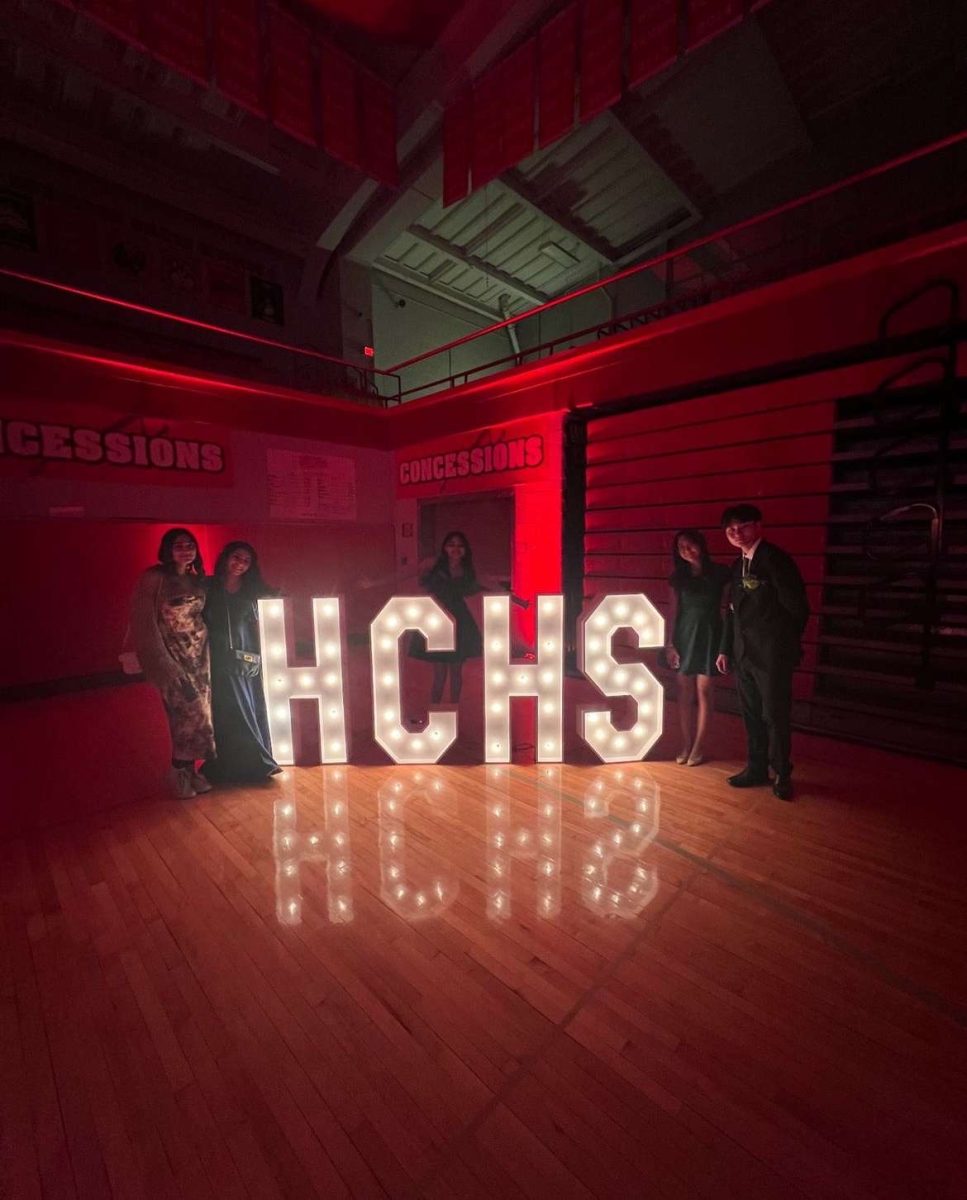Backordered. For some time, that simple word had become the source of many frustrations. For the 2011-2012 school year, Hinsdale Central announced that textbooks would no longer be sold through the school bookstore. Instead, the school would be working with Follett, a virtual bookstore from which families could purchase necessary textbooks. However, as the school year began in August, it became clear that the transition to an online vendor would not be free of problems.
According to Assistant Principal of Operations William Walsh, two problems have been the subject of the majority of complaints from parents: backordered books and the lack of communication from Follett about shipment questions.
The issue of backordered books remains a problem even at this point in the school year. “To me, it’s an egregious error that this is the situation here. It’s the very last thing. And one of the primary concerns we expressed to the virtual bookstore was that we do not want any backordered books. We want every student to have a book,” Walsh said. In working with Follett, the school provided the bookstore with exact numbers of students who would be taking each class.
“Now if you want a textbook, you don’t have to go through Follett. You can go anywhere in the world to get this textbook and find the best economical price for you as a student and as a family,” Walsh said. “We have an exclusivity contract with Follett that we’re going to list their name as a vendor, but nothing says you can’t go anywhere else.”
Based on its prior experiences with other schools, Follett calculated that 50 percent of students would purchase their books from the bookstore, others opting to use vendors such as Amazon and eBay. With this calculation in mind, Follett only stored 50 percent of Central textbooks. It came as a surprise, therefore, when 85 to 90 percent of Central students went to Follett to make their purchases.
The administration did try to explain the possibility of this occurrence to Follett. “They weren’t expecting [the market shortage], but we tried to tell them that we believe our parents will come to you. We can’t guarantee it, but we believe so, therefore, this is what we have,” Walsh said.
Michael Ivancich, chair of the Department of Family and Consumer Sciences and Technical Education, experienced issues with backordered books. As of Sept. 16, approximately 20 out of 50 students in his Accounting Honors class still had not received their books. Ivancich made copies of the first two chapters of the textbook, which is an e-book, and accessed other useful materials, so his classes did not fare too poorly.
“I think there’s a frustration [amongst students], and I think they were wondering ‘how was this going to impact me?’ but I think because of some of the measures we put in place in making copies for them, it has kind of allayed some of those fears,” said Ivancich of students who had still not received their textbooks.
Still, the backorder was the not the only problem facing Ivancich’s students. “Originally, there was a bit of a snag in terms of what to actually order, so there was a little bit of a frustration on a few people’s part,” Ivancich said. In responding to parents’ concerns, Ivancich said, “We just kind of told them, ‘Hey, we’re not going to hold it against your kids. We’re going to figure out a way to work through this,’ and I believe we’ve done that.”
Walsh recognizes the magnitude of the error and expressed his disappointment with the system. Even though Walsh realizes that a number of students ordered books later into the school year, he still believes the trouble with getting textbooks is the company’s fault. “I don’t care if you ordered the week before school, the day before school, the day of school. I ordered a book. Get it in my hands and get it in the hands of my kids,” Walsh said.
In anticipating problems with backordering, the school entered a short-term three year contract with Follett. Regardless of how the situation plays out, however, Walsh said, “Whether it’s Follett or whether it’s somebody else that’s going to commit to it, books are online [from now on].” Last year, Walsh, the district business manager, and the assistant principal of operations at Hinsdale South researched various textbook vendors, and in the end, they received approval from the Board of Education, and the contract with Follett went into effect.
A significant reason for the transition was due to complaints about the inconvenience of having to purchase books at a particular time over the summer as in previous years. The school’s decision was also partially influenced by the current trend of electronic books, which are often used today by Central teachers. Walsh said, “This was another way for the district to examine their own fiscal responsibility in regards to textbooks.” The school also has more available space now because room for storage is no longer an issue.
Cara Tenerelli, junior, also experienced a backorder problem. Like her, many students in her Spanish class did not receive their books on time. Although Tenerelli did not get her book until a week into school, she was able to keep up by using copies of course materials that her teacher had made. Tenerelli felt that the system was effective. “I think that the new system worked well this year, and I hope that it is just as successful next year,” Tenerelli said. Despite the problem of the backorder, she was able to manage her course work.
Tenerelli feels that non-online options should not be eliminated but that online options should be made available to students. She points out that the Internet does not always cooperate with users and can sometimes become an issue. At the same time, Central has been moving in a more online-centered direction, and was drawn to Follett since it seemed convenient and simple to navigate.
Kaynaat Khan, senior, did not feel the same way about the system. Khan also faced issues with her schoolbooks. When school began, she still had not received her AP Psychology textbook. “I thought they weren’t efficient enough,” said Khan about Follett. “[My teacher] gave me her old book for a day, but because it was so different from the new edition that she had to extend my due dates.” She ordered the textbook two weeks before the start of school and received it a week into the school year.
Even with the new system in place, Central saw an unexpected trend in bookstore-related matters over the summer, when students must come to school to pick up their IDs, handbooks, and schedules. The expectation was that students would wait until a few days before school to collect these items. In reality, however, almost 75 percent of students came in the first two weeks. Still, some parents appreciated that they did not have to go through the book store this year as that process consumes a great deal of time.
This year, the process of selling back books will be similar to that of last year. Toward the end of the school year during finals week, students will be able to sell their books to Follett. Walsh said, “[Follett] should pay as much as 45 percent for books we will use on campus for 2012-13. Other books get a market value price.” If students wish to sell their books at another time, they will need to pay the expense of shipping. Follett will purchase books regardless of where students bought them in the first place.
In the future, Walsh would like to see a movement toward more internet-based activity. “If you can get your books online, why not get your schedule when you leave school in June? Why not get your ID sometime in May? If you have fees, why not pay them online?” Walsh said. Students and their families would not be obligated to come to school but instead would have more freedom to take care of such matters at their own convenience. The hope is that, in the future, the online bookstore will also be able to pre-populate a list of books for students based on their classes. Students could then edit this information and purchase what they need.
While the school has dealt with a series of complaints about the current bookstore situation, the administration’s hope is that Central can eventually move toward a more efficient, comfortable procedure for buying books and handling other school matters.














